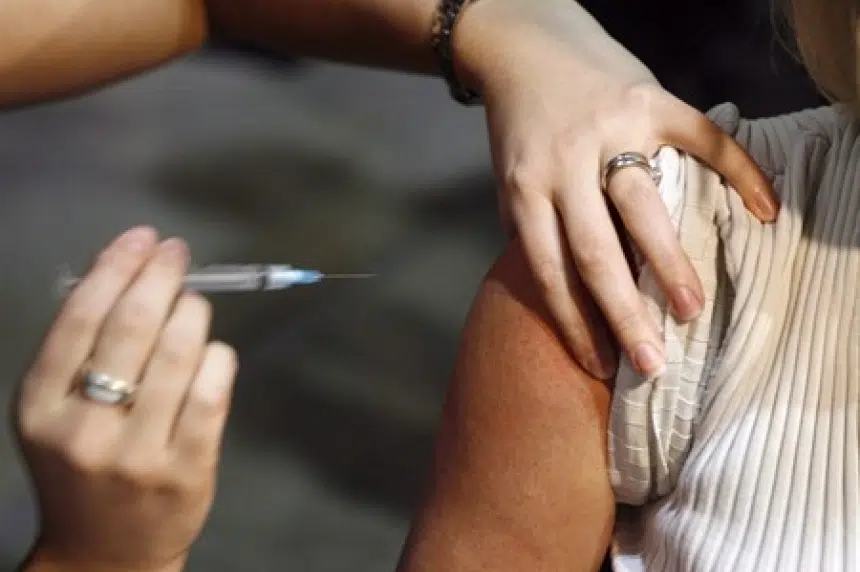A case of measles has been confirmed in Yorkton.
It was found in an infant returning with their family through the Regina Airport having travelled overseas on Sunday.
The family had been vaccinated but the child had not yet been immunized.
“Fortunately, this family went straight to the emergency room in Yorkton from the Regina airport, which reduced the number of exposed persons so therefore I think it may be limited in its impact and severity,” Dr. Mark Vooght with the Saskatchewan Health Authority said Thursday.
“We do not have any knowledge of anyone else having developed symptoms and, to be honest, it is a little too soon for an exposed person to develop symptoms, that normally takes between one and three weeks.”
But in the interests of caution, the Saskatchewan Health Authority has issued an exposure alert aimed at passengers on specific flights and at certain airports.
Flight information:
- June 9, 2019: Air China Limited flight CA 0948 departing from Delhi’s Indira Gandhi International Airport (DEL) at 2:50 a.m., and arriving at Beijing Capital International Airport (PEK) at 11:25 a.m. The passenger with measles was at PEK prior to boarding the next flight.
- June 9, 2019: Air China Limited flight CA 0991 departing from Beijing Capital International Airport (PEK) at 3:25 p.m., and arriving at Vancouver International Airport (YVR) at 10:50 a.m.
- June 9, 2019: Persons in Vancouver airport terminal “Main Terminal” at approximately 10:50 a.m. with the path of travel through Canada Customs and Immigration area shortly thereafter.
- June 9, 2019: Air Canada flight AC 8572 departing from Vancouver International Airport (YVR) at 2 p.m., and arriving at Regina International Airport (YQR) at 5 p.m.
- June 9, 2019: Persons at Regina airport arrivals and baggage area between 5 p.m., and 8 p.m.
Hospital exposure:
- June 9, 2019: Between the hours of 5 p.m., and 3:40 a.m. on June 10, 2019, at the Yorkton Regional Health Centre.
If you have been on any of these flights, in the airport or in the Yorkton Regional Health Centre during the times above, and are pregnant, immunosuppressed or under the age of one, you may qualify for preventative treatment.
While the risk is there, Vooght doesn’t think there will be any great risk of this disease spreading.
“In Saskatchewan approximately 90 to 91 per cent of children at two years of age are vaccinated which is quite good,” he said. “However we also know we need to boost that up to at least 95-plus per cent to be able to say fairly safely be able to prevent outbreaks occurring of measles.”
Measles is a highly infectious disease transmitted by airborne spread. Passengers, crew, travellers and area residents who may have come into contact with measles as above, and are unsure of their immunization against measles, are asked to contact their local Public Health Office.
While it is expected that the majority of travellers will be immune to measles, some individuals may be susceptible, including infants under one year old, immunosuppressed people, or people who have never been immunized against measles.
Individuals most at risk from measles are those who are completely unvaccinated against the disease, including babies under one year of age. Individuals born after 1970 should have received two doses of a measles vaccine (often given as combined measles, mumps and rubella vaccine, or MMR) to be protected. Those who were born prior to 1970 are likely to be immune due to prior measles infection.
Infected individuals are likely to develop symptoms within seven to 21 days of being exposed. Symptoms of measles include fever, cough, runny nose, red eyes and a rash that starts centrally and spreads.







